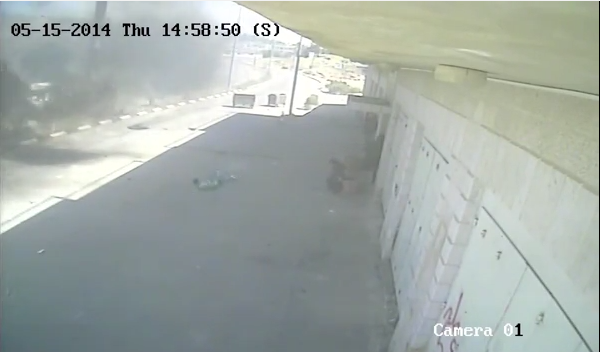Human Rights Watch: Israeli Forces Killing of Two Palestinian Nakba Day Protesters is 'War Crime'

The shooting and killing of two Palestinian teenagers protesting on Nakba Day in the occupied West Bank constitutes a war crime, Human Rights Watch has said in a new report.
The footage, released by Israeli NGO B'Tselem, shows teenagers Nadeem Siam Nawara, 17, and Mohammad Mahmoud Odeh, 16, being shot in the chest and back respectively by Israel Defence Force (IDF) soldiers at the protest near Ofer Prison in Beitunia.
The report, entitled: "Killing of Children Apparent War Crime", states that the pair "posed no imminent threat to the forces at the time" they were shot with what appeared to be live ammunition.
"The willful killing of civilians by Israeli security forces as part of the occupation is a war crime," said Sarah Leah Whitson, Middle East and North Africa director at Human Rights Watch.
"Israel has a responsibility to prosecute the forces who targeted these teens, and also those responsible for assigning the use of live ammunition to police a demonstration."
"The Israeli military's claim that its forces didn't shoot any live ammunition on May 15 does not stand up to scrutiny," she said.
In another revelation, the report details how Israeli soldiers "shot rubber bullets at a group of Palestinians" who were attempting to carry one of the victims to safety.
Israel's defense minister Moshe Ya'alon, who said he had not yet seen the video, claimed the footage had been manipulated with editing techniques.
He claimed that the Nakba Day protest was "violent, during which Molotov cocktails and stones were thrown at border police officers who felt that their life was threatened, and acted accordingly".
Nakba Day, otherwise known as the Day of Catastrophe, relates to the creation of the state of Israel in 1948, after which 90% of the 1.4 million Palestinians - living on the land that is today called Israel - fled or were forced into exile, according to the Palestinian Central Bureau of Statistics (PCBS) in Ramallah.
No official from the Israeli military was immediately available to comment on the Human Rights Watch report.
© Copyright IBTimes 2025. All rights reserved.






















